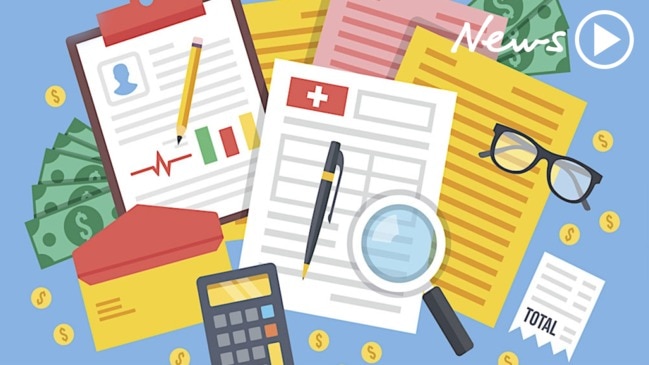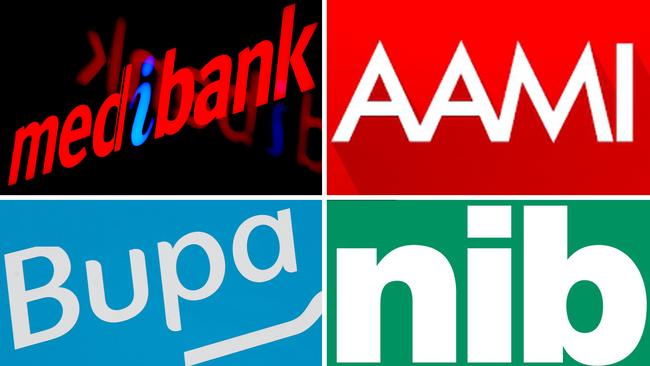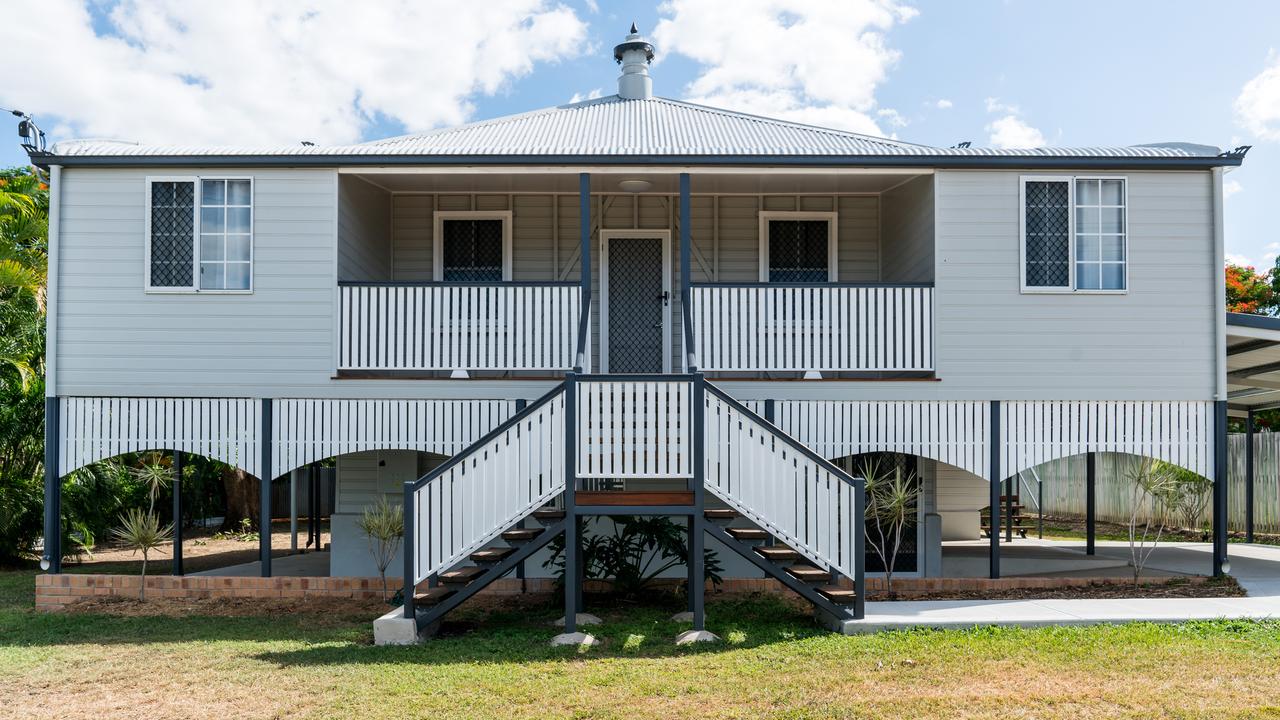‘We’ve been played for dummies’: Sydney man saves nearly $3000 switching health insurance
Millions of Aussies are about to be slugged with an extra $135 a month but Sydney man Peter Johnson has figured out how to reduce household expenses.

Banking
Don't miss out on the headlines from Banking. Followed categories will be added to My News.
Comparison experts are urging consumers to take advantage of the looming health insurance rate hike to test the market as one Sydney man says he will pocket nearly $3000 from shifting policies.
Premiums will rise 3.25 per cent on average from April 1, which comparison website operator iSelect says will equate to an increase of $135 a year for an average family policy.
Peter Johnson, 52, and his wife realised they would be paying about $620 a month with their Bupa fund, while he says he had heard of younger families with children paying about half that.
iSelect helped the couple trim items off the cover they didn’t need such as pregnancy and fertility treatment, settling on a fund with NIB saving them $2856 per year.
“It just goes to show that you get complacent and you take things for granted,” Mr Johnson told news.com.au.

“When you start chipping away at what’s in your cover that you don’t need, then you get rid of that surplus and it drops the bill down.
“So we’ve actually got better cover than what we had for less money.”
Mr Johnson said he had been with Bupa since he finished school in 1981.
“So much for loyalty huh,” he said.
“We’ve been played for dummies for years because these people expect you to sign up and just keep things rolling over and they don’t get out there and tell you where you can save money.
iSelect health insurance expert Jessie Petterd said it was important Australians know how their policy will change from April 1 and make sure they have the right level of cover at the right price.
“In the long run, these changes will be really good for customers because it will be a lot easier for them to compare policies and to understand exactly what their covered for,” she told news.com.au.
“But, in the short term, it is likely to cause a bit of confusion among consumers because they might not really understand how their policy is changing.”
• House prices falling faster than during global financial crisis
• Labor’s negative gearing changes will raise rent
• Apartment glut adds further pain to property market
More than half of policy holders will take action to save on their private health before the premium rise is brought in, which is about 6.9 million Aussies.
But, alarmingly, iSelect says about one million will cancel their cover altogether.
“A lot of people might be feeling a little bit put off by the upcoming changes to private health insurance, especially the rate rise and considering whether or not private health insurance is worth it for them,” Mrs Petterd said.
“Our advice is if you’re feeling confused about it, to speak to a health insurance expert.”
CONSUMERS WARNED ON HEALTH INSURANCE SHIFT
As comparison companies flock to offer advice on the best deals, consumer group Choice warns any health insurance advice is “frankly dishonest”.
The group says a national survey shows 82 per cent of Aussie households are concerned by health insurance costs with the expenditure now the number one concern for families.
“We asked our Choice community to pitch in and help us understand these changes,” the group’s spokesperson Jonathan Brown said.
“What we found was a health insurance system in a state of mess.
“It’s frankly dishonest for anyone to say they can provide a true comparison of the health insurance market right now.
“New policies will be released over the coming weeks and months that will change in coverage and price.
“Until we have all the facts about the quality of cover in the market, no one can tell you what the best value for money policy will be for your needs.”
But price comparison website operator iSelect rejected this.
“We have worked closely with all the health insurers on our panel to make sure our comparison services reflect the upcoming changes,” iSelect Health spokeswoman Laura Crowden said.
“Customers comparing or purchasing health insurance through iSelect can be confident that the policy we recommend will meet their needs both today and after April 1, based on the customer’s current circumstances.”

HOW WILL PRIVATE HEALTH INSURANCE CHANGE ON APRIL 1?
* Premium hike
Private health insurance premiums are set to rise by 3.25 per cent on average.
* New rating system
Four new tiers of hospital cover will be rolled out this year and become mandatory from April 1, 2020. All hospital insurance policies will be classified as Gold, Silver, Bronze or Basic. What is, and isn’t, covered in each category will be based on new minimum standards. For example, if heart and vascular system is covered in the category then it must cover everything listed in that category.
Basic Plus, Bronze Plus and Silver Plus policies will cover at least one service more than what’s offered in the normal categories. For example a Silver Plus policy could include cover for cataract surgery which would otherwise only be covered under a Gold policy. Each insurer will vary in what extra they include on the plus package.
The reforms do not apply to extras cover.
* Youth discount
Insurers will be allowed to offer people aged 18-29 years discounts of up to 10 per cent on their private health insurance hospital premiums. They will be able to retain that discount until they turn 41 if they stay on the same policy. The allowable discount will be 2 per cent for each year a person is aged under 30.
* Rural help
People living in regional and rural areas can receive travel and accommodation benefits by insurers if they need to travel for special medical or hospital treatment.
* Cull on natural therapies
A range of natural therapies cannot be covered by insurers and will be removed, including homeopathy, naturopathy, pilates, yoga aromatherapy and Bowen therapy.
* Higher excess exchanged for lower premium
People can increase their excess in exchange for a lower premium. The maximum excesses have been raised to $750 for singles (from $500) and $1500 for couples and family policies (from $1000).
Source: Privatehealth.gov.au
— With AAP
Continue the conversation on Twitter @James_P_Hall or james.hall1@news.com.au
Originally published as ‘We’ve been played for dummies’: Sydney man saves nearly $3000 switching health insurance


